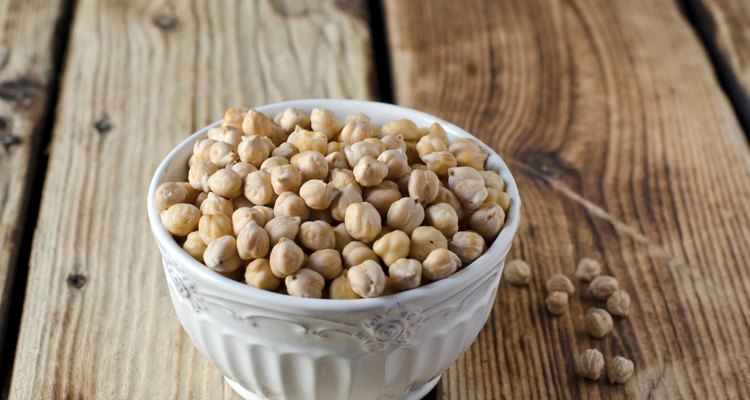
Teleginatania/iStock/Getty Images
Adults should eat at least 2 to 3 cups of vegetables per day, according to the USDA's ChooseMyPlate website. Vegetables consist mainly of carbohydrates, but most also contain at least small amounts of protein as well. Most Americans get plenty of protein through their diets, but if you are worried about your protein intake, dried beans and peas are among the best vegetable sources of this nutrient.
Beans and Peas
Beans and other legumes are such good sources of protein that you can count them toward either your recommended protein servings or your recommended vegetable servings. For example, a cup of canned navy beans has about 19.7 grams of protein and 53.6 grams of carbohydrates, and a cup of canned great northern beans has 19.3 grams of protein and 55.1 grams of carbohydrates. Other legumes with at least 15 grams of protein per cup include chickpeas, lentils, white beans, edamame, kidney beans, cranberry beans, split peas, pink beans and black beans.
Non-Starchy Vegetables
Non-starchy vegetables are among the healthier vegetable choices because they provide high amounts of vitamins and minerals but contain only a small number of calories per serving. Canned straw mushrooms have 7 grams of protein and 8.4 grams of carbohydrates per cup. A cup of canned spinach has 6 grams of protein and 7.3 grams of carbohydrates. A cup of chopped broccoli has about 5.7 grams of protein and 9.8 grams of carbohydrates, and a cup of cooked frozen Brussels sprouts has 5.6 grams of protein and 12.9 grams of carbohydrates.
Starchy Vegetables
Some starchy vegetables also contain significant amounts of protein. A large baked Russet potato with the skin has 7.9 grams of protein and 64.1 grams of carbohydrates, and a cup of cooked sliced taro root has 5.7 grams of protein and 9.4 grams of carbohydrates. Eat a cup of corn, and you'll get 5.4 grams of protein and 38.8 grams of carbohydrates.
Amino Acid Considerations
Although vegetables can have significant amounts of protein, soybeans are the only vegetable that contains all of the essential amino acids. Animal-based protein foods and quinoa also provide all of the essential amino acids. As long as you eat a variety of different protein-rich foods throughout the day, however, you'll get enough amino acids, even if you're vegetarian.
Related Articles
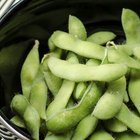
List of High Protein Vegetables
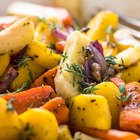
How to Roast Radishes, Parsnips, ...
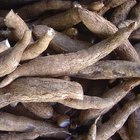
How to Cook Yucca Root

How to Juice a Daikon Radish

Nutritional Values of Vegetables ...

Leaving Cooked Vegetables Unrefrigerated
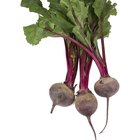
How to Freeze Fresh Beets

How Fast Does Cooked Spaghetti Squash ...

Low Carb Peanut Butter Snacks
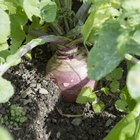
How to Cook Rutabaga in the Microwave
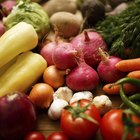
What Vegetables Are Good for Type 2 ...
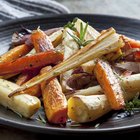
How to Cook Winter Root Vegetables in a ...

How to Cook Fresh Turnip Greens
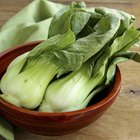
Bok Choy Nutrition
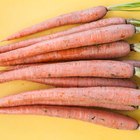
How to Freeze Carrots Without Blanching

How to Julienne Jicama

The Function of Fruits

How to Preserve Amino Acids in the ...

How to Cook Zucchini Like a Japanese ...

How to Cook Mixed Greens
References
Writer Bio
Based in Massachusetts, Jessica Bruso has been writing since 2008. She holds a master of science degree in food policy and applied nutrition and a bachelor of arts degree in international relations, both from Tufts University.
Photo Credits
Teleginatania/iStock/Getty Images